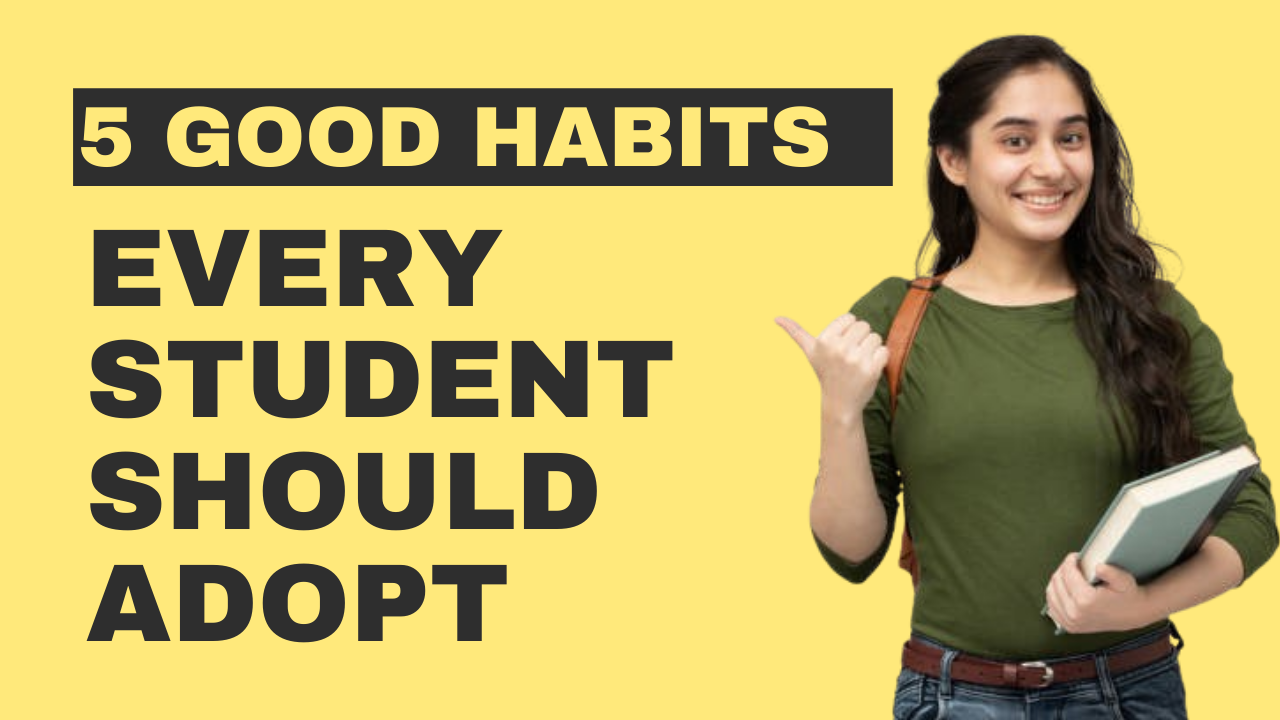5 Good Habits Every Student Should Adopt
Success in academics and life often boils down to the habits we cultivate. For students, developing positive habits can be the cornerstone for achieving their goals. Here are five essential habits that can significantly impact a student’s journey.
-
Effective Time Management
Time is a finite resource, and managing it effectively can make all the difference. Successful students understand the value of planning their day, prioritizing tasks, and avoiding procrastination. Utilizing tools like planners or digital apps can help in setting a schedule that includes time for studies, extracurricular activities, and relaxation.
Tips for Better Time Management:
- Use a planner or digital calendar to track assignments and deadlines.
- Break down larger tasks into smaller, manageable chunks.
- Set specific study times and stick to them.
-
Active Participation in Class
Engagement in class is more than just attendance; it’s about being mentally present and active. Asking questions, participating in discussions, and taking detailed notes can enhance understanding and retention of the material. Active participation also signals to teachers that you are interested and eager to learn.
How to Participate Actively:
- Sit in the front row or a place where you can stay focused.
- Prepare questions in advance based on your readings.
- Engage with your peers and instructors in discussions.
-
Consistent Study Routine
Creating a study routine that you can stick to every day can significantly improve your academic performance. This habit ensures that studying becomes a part of your daily life, not just a last-minute activity before exams. A consistent routine reduces stress and builds a strong foundation of knowledge over time.
Building a Study Routine:
- Choose a specific time and place for daily studies to create a sense of ritual.
- Mix different subjects to keep things interesting and avoid burnout.
- Include short breaks to improve concentration and absorption of material.
-
Healthy Lifestyle Choices
Physical and mental health plays a crucial role in a student’s ability to perform academically. Regular exercise, a balanced diet, and sufficient sleep can boost cognitive functions, concentration, and memory. Moreover, practices like mindfulness or yoga can help manage stress and maintain mental health.
Tips for a Healthy Lifestyle:
- Incorporate physical activity into your daily routine.
- Choose nutritious foods that fuel your body and mind.
- Aim for 7-9 hours of sleep per night to ensure optimal performance.
-
Reflection and Self-Assessment
Taking time to reflect on your progress and assess your strategies can lead to continuous improvement. Reflective practices enable students to identify their strengths and areas for improvement, adapt their learning strategies, and set realistic goals.
How to Practice Reflection:
- Keep a journal to record your thoughts, successes, and challenges.
- Set aside time weekly to review your academic performance and personal well-being.
- Be open to adjusting your methods and trying new strategies for better results.
Conclusion
Adopting these habits can pave the way for not just academic success but also personal growth and satisfaction. Remember, the key is consistency and a willingness to adapt and improve. Start small, focus on building one habit at a time, and gradually, these good practices will become a natural part of your daily routine.

